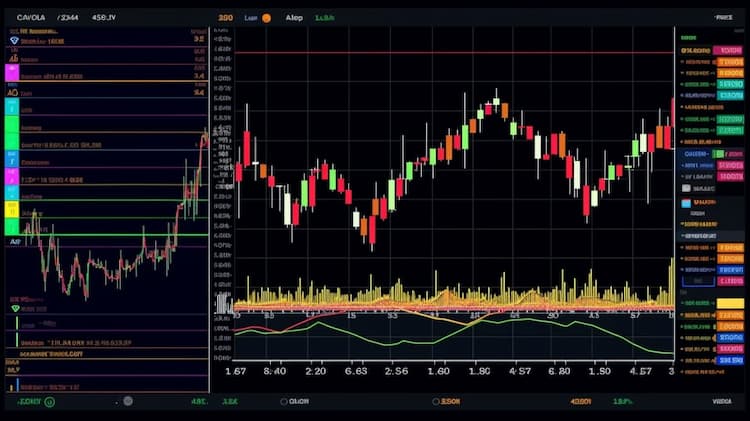
What are the best Marijuana ETFs?
In the world of investing, marijuana ETFs (Exchange-Traded Funds) have emerged as a popular option for those looking to gain exposure to the growing cannabis industry. These specialized funds offer investors the opportunity to diversify their portfolios and capitalize on the potential growth of the marijuana market. In this article, we will explore some of the best marijuana ETFs available, highlighting their key features and investment strategies.
Marijuana ETFs: An Overview
Marijuana ETFs have gained significant attention in recent years as the cannabis industry continues to expand. These ETFs provide investors with exposure to a diversified portfolio of cannabis-related stocks, offering a convenient way to invest in the growing marijuana sector. One notable ETF in this space is the <strong>AdvisorShares Pure Cannabis ETF (YOLO)</strong>.
YOLO vs. Similar Marijuana ETFs
The AdvisorShares Pure Cannabis ETF (YOLO) stands out among other marijuana ETFs due to its focus on providing exposure to companies that derive a significant portion of their revenue from the legal cannabis industry. YOLO invests in both domestic and foreign companies engaged in various aspects of the cannabis ecosystem, including cultivation, distribution, and ancillary services. This ETF aims to capture the potential growth and diversification opportunities within the marijuana market.
Compared to other similar marijuana ETFs like the ETFMG Alternative Harvest ETF (MJ) and the Cannabis ETF (THCX), YOLO offers a unique approach by focusing on companies with significant revenue exposure to the cannabis industry. While MJ and THCX also provide exposure to the marijuana sector, YOLO's strategy may appeal to investors seeking more targeted exposure to companies directly involved in the cannabis market.
 THCX overlap What are the best Marijuana ETFs?
THCX overlap What are the best Marijuana ETFs?
Understanding Marijuana ETFs
Investors interested in the marijuana sector often turn to ETFs as a way to gain exposure to a diversified portfolio of cannabis-related stocks. These ETFs typically invest in a range of companies involved in various segments of the cannabis industry, such as cultivation, manufacturing, distribution, and ancillary services. By investing in a marijuana ETF, investors can potentially benefit from the growth of the cannabis market without having to pick individual stocks.
Benefits and Risks of Marijuana ETFs
Investing in marijuana ETFs offers several potential benefits. Firstly, ETFs provide diversification, spreading the investment across multiple companies within the cannabis sector. This diversification can help mitigate the risk associated with investing in a single cannabis stock. Additionally, ETFs provide liquidity, making it easier to buy or sell shares compared to investing in individual stocks. Moreover, ETFs often have lower expense ratios compared to actively managed funds.
However, it is important to consider the risks associated with investing in marijuana ETFs. The cannabis industry is still relatively new and evolving, which introduces uncertainty and volatility. Regulatory changes and legal challenges can impact the performance of marijuana ETFs. Additionally, individual companies within the sector may face operational and financial risks. Investors should carefully evaluate the risks and conduct thorough research before investing in marijuana ETFs.
Conclusion
Marijuana ETFs offer investors a convenient way to gain exposure to the expanding cannabis industry. The AdvisorShares Pure Cannabis ETF (YOLO) stands out among its peers, focusing on companies with significant revenue exposure to the cannabis sector. While considering the potential benefits of investing in marijuana ETFs, investors should also be aware of the risks associated with this emerging industry. Conducting thorough research and consulting with a financial advisor can help investors make informed investment decisions.
Disclaimer: This article is for informational purposes only and does not constitute financial advice. The mention of specific ETFs does not imply endorsement or recommendation. Always conduct your own research and consult with a qualified financial advisor before making any investment decisions. Not providing any investment advisory services.
Sources:
https://www.marketwatch.com/ YOLO ETF issuer
https://www.marketwatch.com/investing/fund/yolo YOLO ETF official page
FAQ
What are Marijuana ETFs?
Marijuana ETFs are exchange-traded funds that focus on companies involved in the marijuana industry. These ETFs provide investors with exposure to the cannabis sector, which includes companies engaged in the cultivation, production, distribution, and sale of marijuana-related products.
What are some popular Marijuana ETFs?
Some popular Marijuana ETFs include the ETFMG Alternative Harvest ETF (MJ), AdvisorShares Pure Cannabis ETF (YOLO), Global X Cannabis ETF (POTX), Amplify Seymour Cannabis ETF (CNBS), and Cambria Cannabis ETF (TOKE).
What is the investment objective of Marijuana ETFs?
The investment objective of Marijuana ETFs is to track the performance of an underlying index that consists of marijuana-related companies. The ETFs aim to provide investors with exposure to the growth potential of the cannabis industry.
What types of companies are included in Marijuana ETFs?
Marijuana ETFs typically include companies involved in various segments of the cannabis industry, such as cannabis producers, pharmaceutical companies developing cannabis-based medicines, suppliers of equipment and technology to the industry, and companies engaged in ancillary services like packaging and branding.
What are the advantages of investing in Marijuana ETFs?
Investing in Marijuana ETFs offers investors diversification across multiple companies within the cannabis sector, rather than investing in individual stocks. It can provide exposure to the potential growth of the marijuana industry while spreading the risk associated with investing in a single company.




















